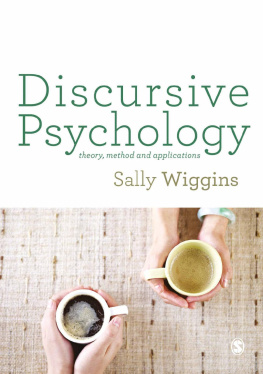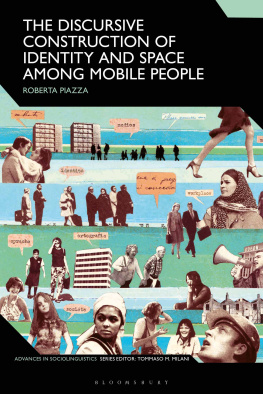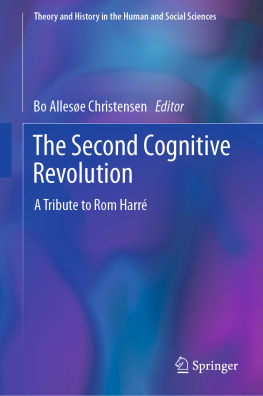The aim of this book is to demystify discursive psychology (DP): from the theoretical principles on which it is based, to the method of how to do DP and use it in different ways. It is designed to be a practical and accessible guide, cutting through difficult theory and providing a clear account of the analytic processes. It offers basic starting points and discusses more advanced issues. It is therefore aimed at students and researchers at all levels, from undergraduate through to postgraduate and beyond. It will provide the scaffolding as you develop your understanding and skills, and allow you to progress at your own speed. There will be activities along the way, to help you practise on your own. DP should not be regarded as difficult or for expert researchers. With a little time and care, anyone can use discursive psychology.
The politics of writing a book
I write this book as someone who has been involved in the field of discursive psychology for some time. I am not so established as to have been there at the very start, nor am I so fresh as to not be aware of the political manoeuvring and pot shots from critics in all directions during the intervening years. I was fortunate enough to undertake my doctoral research under the supervision of Jonathan Potter at Loughborough, with Charles Antaki, Mick Billig, Derek Edwards and many others just an office away. I have also been, and continue to be, inspired and supported by many others in discursive and interactional research across the world. I do not consider myself to be particularly politically motivated. Those who know me would be hard-pushed to define me as radical. And yet this book feels like something of a political argument. I have witnessed the various criticisms from many angles: from cognitive psychologists who do not consider discursive work to be anything more than just talk and subjective interpretation, to phenomenologists who argue that we are missing the very nature of what it means to be human, to other discourse analysts who argue that we are neglecting the big issues and have been hoodwinked by the conversation analysts, and finally to conversation analysts, who wonder why we arent doing CA when were almost there anyway.
My stance is that while I have endeavoured to be even-handed in my treatment of various issues, I have also aimed to provide a clear and practical guide to DP research, to enable it to continue to flourish and develop. This means that I am fairly prescriptive in places: I have erred on the side of being specific and detailed to provide the scaffolding which I mention in the book. Some readers may find it too prescriptive. They may be disheartened at the inclusion of the stages of analysis of DP, for example, as set out in different forms of discourse analysis. They also possibly undermine the skilled way in which established researchers can read a short extract of data and produce a brilliant and eloquent analysis, while the rest of us are still figuring out what all the transcription symbols mean. So yes, there is a risk. But I think it a risk worth taking. We need some scaffolding to support new researchers whether undergraduate students with one class on discourse analysis or postdoctoral researchers tasked with the discursive analysis of six months worth of data to ensure the growth and development of work in this area.
Politics also bubble under the surface of the data examples I use throughout the book. These are infused by my own research interests in eating practices and family mealtimes. It is my book, after all. But it might seem that using examples from family mealtimes are trivial or banal, that they dont really tackle the important things, like inequalities, poverty, conflict, prejudice, death and illness. Or perhaps worse, that these kinds of issues are inherent in food and eating, and yet still I ignore or gloss over these and focus instead on the features of mundane interaction. But perhaps food and eating is in some ways more fundamental than any of those; that if we dont eat, nothing else is possible. So yes, family mealtimes are just one small aspect of life, and no, we dont all have children. But we all start out as children and we all need to eat. And for those reasons alone, I think it worth researching.
How to use this book
The book is in three parts: the first deals with the theoretical side of DP and how it stands in relation to four other discourse analytical approaches. This should give you an understanding of what DP is about and when you might use it. The second part deals with the practical aspects of DP: how to actually do it, from the stages of deciding on a research question, to collecting and analysing data, and to presenting your work in different formats. The third part provides some what next issues; inspiration from some of the early and contemporary work in DP, as well as some ways in which we might consider the application of either theory or practice.










